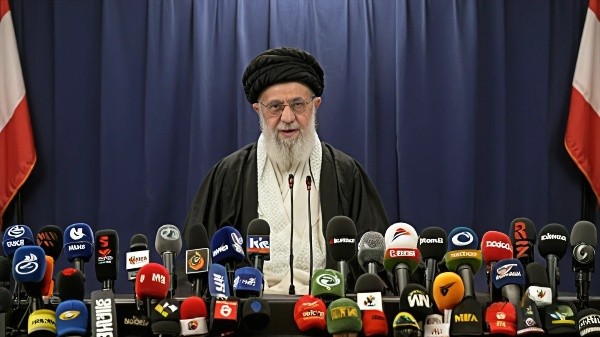The Illusion of Peace: U.S. and Israel's Conflicting Visions for Gaza's Future
Analysts say US push for Gaza post-war phase is ‘unrealistic’ as Israel vows to continue fighting in besieged territory.
Loading...

In the eyes of many, the Islamic Republic remains the last bastion in the Muslim world against unchecked Israeli aggression
Introduction: The Last Bastion of Resistance
Iran stands as a formidable force in the Middle East, often viewed as the last bastion against unchecked Israeli aggression. This perception is bolstered by its robust military capabilities and its strategic foreign policy moves, such as joining the BRICS+ alliance. This membership is expected to strengthen Iran’s ties with Russia and China, potentially increasing tensions with Western powers, particularly the United States.
Escalating Tensions: Recent Israeli Attacks
Tensions in the region continue to escalate following a recent Israeli attack on Iranian military facilities, resulting in the deaths of four Iranian servicemen and a civilian. This attack is seen as a response to Iranian missile strikes on Israel earlier this year, although Iran maintains that its actions were aimed at military targets, avoiding civilian areas. Iranian President Masoud Pezeshkian emphasized that while Iran does not seek war, it will respond appropriately to Israeli aggression, highlighting the nation's commitment to defending its sovereignty and people.
Iran’s Strategic Alliances and Economic Challenges
Iran's integration into the BRICS+ bloc is part of a broader strategy to end its global isolation. By enhancing its military partnership with Russia and economic ties with China, Iran aims to reshape the security architecture of the region. Despite facing substantial economic sanctions from the United States—estimated to have inflicted $1 trillion in damage—Iran remains steadfast in its resistance. The 25-year strategic cooperation agreement with China exemplifies its efforts to bolster its economy and reduce reliance on Western nations.
Moral and Political Justifications for Resistance
Iran’s resistance is deeply rooted in its moral and political stance. Supreme Leader Ali Khamenei, in a rare public sermon, reaffirmed Iran's commitment to resisting Israeli aggression, urging the broader Arab world to bolster their efforts against what he describes as an aggressive enemy. The Iranian leadership views its role as a defender of the oppressed, particularly the Palestinian people, against what it sees as Israeli expansionism and aggression.
Iran’s Historical Context and Changing Alliances
Iran’s current stance against Israel is a relatively recent development, emerging after the 1979 Iranian Revolution. Prior to this, under the Pahlavi dynasty, Iran maintained diplomatic relations with Israel, driven by Western alliances. The shift occurred in the 1970s, marked by Iran’s changing foreign policy during the Yom Kippur War, setting the stage for Iran's post-revolutionary stance.
Conclusion: Iran as the Voice of Resistance
In the contemporary geopolitical landscape, Iran is arguably the most vocal opponent of Israeli policies in the region. Its resistance is not just a matter of national pride but a strategic necessity to counterbalance Israeli and Western influences in the Middle East. Despite facing significant economic and political challenges, Iran's defiance continues to resonate across the region, positioning it as a key player in the ongoing struggle for power and influence in the Muslim world.
Editor
Analysts say US push for Gaza post-war phase is ‘unrealistic’ as Israel vows to continue fighting in besieged territory.
And recent Iraqi history can tell us how.
Here’s why the US and its allies are afraid of real military cooperation between Tehran and Moscow
